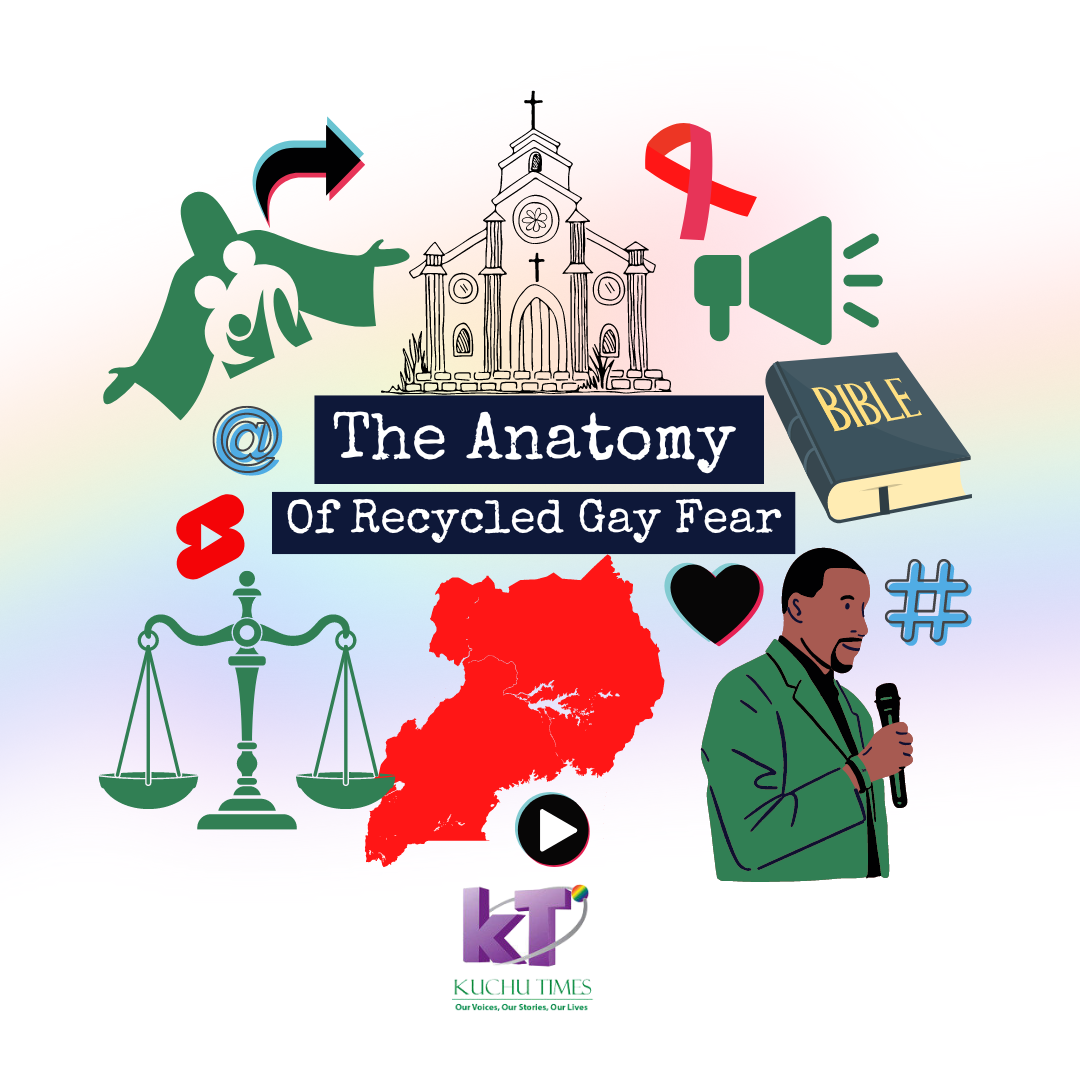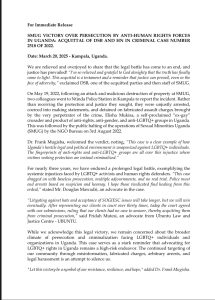An article by Bana Mweisge
This is for my siblings and allies,
Back when I had just finished high school, I had a health crisis that I found very difficult to divulge. I had hemorrhoids. At the time, I did not know. My guardians and I at the time had been fed a constant stream of hate and fear from the media about homosexuals. Now here I was, someone who had never had any homosexual contact, having a health crisis down there. I did not even have one gay friend. To say I was scared is an understatement. I tried googling, but I was at a loss because I could not figure out exactly what I was suffering from. I finally decided to wait it out; maybe immunity will take over and it will just go away. Those 3 long months of waiting were tough! I remember one person at church noticing my visible pain and asking how they could help. I brushed them off and mumbled something about injections. My big break came when a pregnant lady I was working with, who also happened to be a nurse, described the same condition to me in a casual conversation. I asked her jokingly what she used, and she told me about some tablets. This lady saved my life. To think that I was suffering from something that could be fixed by drinking warm water, eating bananas, and taking two tablets still hurts me to this day. Homophobia literally cost me excruciating pain for months and almost killed me.
The current wave of homophobia and gay panic is no different. The people, the arguments, the coverage, and the fear-mongering are the same. Its effects will be just as devastating or even worse. Today, I want to share some of the through lines between these two waves. The current one and the wave of gay panic around the passing of the anti-homosexuality act Also, I will highlight what, if anything, has changed in my opinion.
To set the scene, both gay moral panics began with feuding pastors and religious leaders. We all remember the Kayanja case, where after the pastoral clowns (Ssempa, Kyazze, and Male) failed to stick charges of sodomy and rape on their fellow pastor, they turned towards attacking the entire LGBTQ community to regain sympathy and the trust of Ugandans. In the current panic, if you look closer, these same exact men are the go-to for everything anti-gay.
This current panic also has one notable difference. Following a difficult pandemic, many churches (including the Anglican Church of Uganda) experienced not only a drop in church attendance but also a crisis of relevance. For one, Ntagali was involved in an infidelity scandal that could not be explained away, and secondly, their response to the November 2021 murders was abysmal. So, in an effort to remain relevant, the new guy decided to focus on the one tried and true target, the homosexuals.
The prevalence of unverifiable stories is a recurring theme in a gay panic. No single person can point to a verifiable “recruitment” story from the 2010s. In the current panic, no one can really verify the identity of those girls in the Vienna video or the Buddo teacher everyone is talking about. For a country and media that have no standards when it comes to child protection (see victims of Chris Mubiru), you would think identities would be verified by now. What is very telling is that even Tayebwa (the Deputy Speaker) claims to be “hearing painful
stories.” Further still, a lot of lawmakers will claim they saw stories or pictures on social media to
justify their panic. Essentially, policy debates in Uganda's parliament are governed by unverifiable rumors and social media stories. Also, as a general rule of thumb for my queer siblings and allies, if it cannot be verified, it is probably not true.
While in the past, the Ugandan media was more homogeneous (excuse the pun) in their fueling
of the gay panic, it is telling that right now, the only primetime opinionated talk-show discussion on this issue has been on UBC (a government owned and run media entity). Make of that as you may, the media landscape is fragmented. There are entire channels on YouTube and TikTok dedicated to recycling anti-gay talking points. There are memes, videos, and pictures (the most famous of these being the “gay” shoes at Bata) being recycled in our aunties; church WhatsApp groups. Oooh, and then there is that children’s park painting in
Entebbe that somehow looked like a rainbow and was shared all over social media, leading the mayor to repaint it in some really horrendous colors.
My point is that there are no newspapers, TVs, or radio stations of record anymore to refuel the
panic. So, will traditional media houses recycle the social media hate? Or let the hate drive their
coverage? or bury their heads and pretend nothing's happening? Katulinde.
Oftentimes, in any moral panic, there will be one story that will be blown out of proportion to serve as an example or drive a message home. In the late 2000s, it was the Kayanja case, and in the 2010s, it was Chris Mubiru. Now it is the Buddo story. What do all these stories have in common? Men in positions of power abusing their position to sexually exploit younger or underage boys. The genius of the panic’s perpetrators is somehow roping in the entire LGBTQ+ community of all ages, backgrounds, and statuses. It worked then, and so far right now, it’s working.
For people who claim that gays have money, the drivers of this movement sure do have unlimited money. All those press conferences, the dinners, and the social media influencers require money. No one is shouting themselves hoarse about Julie Mutesasira's wife on YouTube for nothing. And they sure are not using their own money/resources to promote their tweets and videos. Also, no single church in Uganda has ever collected a special
offertory/offering to contribute towards the fight against homosexuality. None. Therefore, the
math is simply not mathing.
Finally, the gay panic is a great opportunity to get back at the rich and their children who go to rich schools like Buddo, Vienna and Greenhill. It is an opportunity for middle class and lower class Ugandans to warn people about the dangers of those expensive International Schools in favor of cheaper “traditional” schools. It is a chance to dunk on rich people as “sell-outs” because they cannot speak out against this issue for fear of not getting a Visa to the United States.
For the government institutions it is an opportunity to distract a little from the hundreds of
corruption investigations into their agencies and their response. In the late 2000s and early
2010s, it was Temangalo; now it's Uganda Airlines and NSSF.
When I say it’s all the same tired, recycled stuff; believe me and the unfortunate thing is that it is
guaranteed to work every time.




